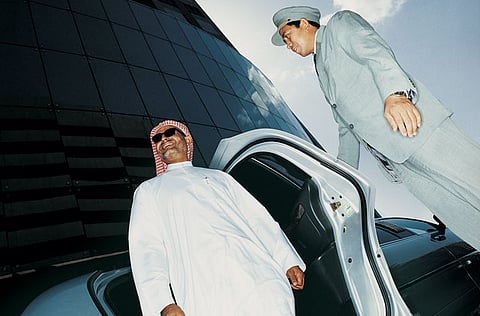UAE rich might not get any richer: study
Inflation will make wealthy spend more this year

Dubai: It’s not only the average-income consumers who have to grapple with inflation. Those with deeper pockets now have to spend more this year to continue living a life of luxury, a new research has found.
The ultra-wealthy this year will be setting aside more cash to send their children to Harvard, book a suite at the Ritz Carlton, drive a new Mercedes or spend a holiday in London and New York, the latest Julius Baer Wealth Report suggested.
The study, which tracked the cost of a basket of luxury goods and services that represent discretionary purchases of individuals with vast fortunes in Asia, found that the cost of education at Oxford or Harvard has jumped by 30 per cent, while the prices of other extravagant indulgences, such as a golf club membership, a botox treatment, a pair of Louboutin pumps, a Rolex watch or a Tiffany diamond ring have posted an upward trend.
Although the figures were sourced from local high-end vendors across four major Asian cities of Hong Kong, Shanghai, Singapore and Mumbai, the same trend could be observed in the region.
“Generally speaking, we would expect that in most regions of the world, the Gulf included, luxury goods and services prices are rising faster than standard inflation,” Stefan Hofer, emerging market economist at Julius Baer told Gulf News. “Sometimes, this is driven very much by local factors of supply and demand, but in other areas, such as international education, prices have little to do with local conditions.”
What Julius Baer’s research found in Asia, however, is that luxury taxes there, which can be as high as 30 per cent, play a significant role. “In contrast with the Gulf, as Asia is net energy importer, rising energy prices will have a slowing impact on wealth creation, all else being equal,” Hofer said.
Countries in the GCC have a huge density of wealthy residents, with Qatar registering the highest proportion of millionaire households in the world, accounting for 14.3 per cent of the population, according to a report by Boston Consulting Group. Kuwait, Bahrain and UAE are also in the top 10.
Despite the Arab Spring and tensions in Syria, private wealth in the Middle East region continues to expand, reaching $4.8 trillion (Dh17.6 trillion) in 2012, up by 9.1 per cent. The figure is forecast to grow to $6.5 trillion by the end of 2017.
Steve Gregory, managing partner at Holborn Assets based in Dubai, however, argued that the rising cost of goods and services is not likely to have any significant impact on the finances of the ultra-rich. Instead, it’s the less privileged who will suffer most.
“Since the people we are talking about are likely to be amassing more money daily at a faster rate than they can spend it, I doubt the inflationary effects will even dent their wallets. It’s the middle class, working class and the poor who suffer the most due to inflation,” he said.
“The billionaires will almost always take advantage of inflation and benefit from it. The luxury car dealers put up their price and find their percentage profit is a larger amount than last year. It is said the rich get richer and the poor get poorer, but that’s not true all the time of course,” he added.



